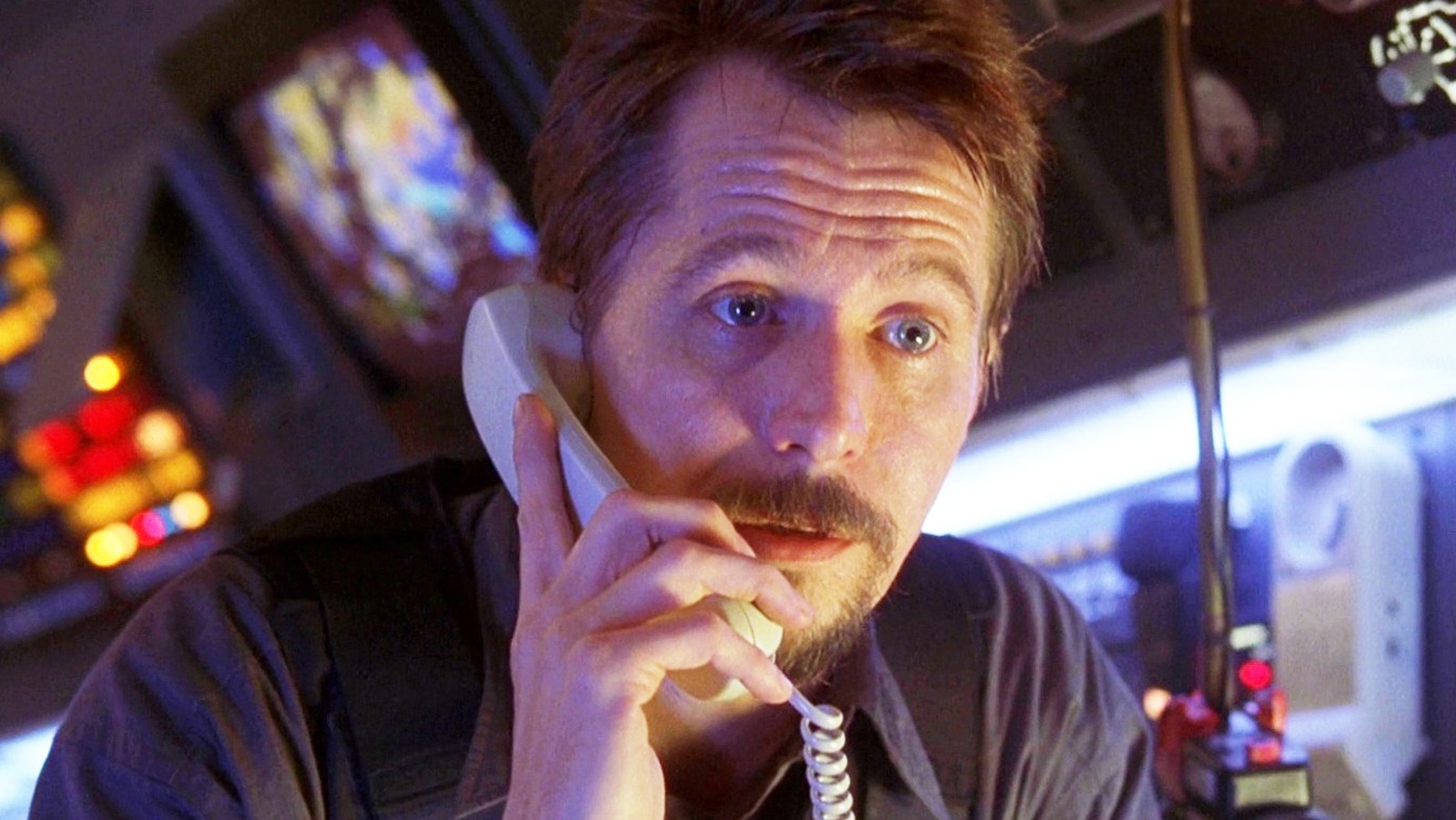Now, Marlowe says the exact backstory he wrote for Gibbs has been “lost to the wind. It’s been 28 years since I wrote it.” However, he was able to paint the broad strokes and specify that it was a “financial motivation,” not a “political motivation” (“This was at a time when the Secret Service was considered apolitical,” Marlowe adds).
“[Gibbs] was a guy whose career never got to where he wanted it to be and he could never afford the things he wanted in life. He didn’t feel special in his world and those are the ingredients for somebody who can be cultivated, somebody who can be turned, somebody who can be paid off.”
The problem is that Gibbs only reveals himself as a traitor to Marshall when they’re trying to evacuate the crashing plane. According to Marlowe, Petersen felt this was the wrong time for any more exposition: “Hey, we can’t stop the movie when it’s the face-off between the president and the Secret Service agent to have this explanation,” he recalls the director saying.
Instead, Gibbs’ motivation is vaguely alluded to when Korshunov throws some patriotism back in Marshall’s face: “Mr. President, do you know how I got on this plane? Money. God bless America.”
According to Marlowe, “couch[ing]” the motivation in Korshunov’s worldview like this reinforces his motivations: “In his mind, the capitalist system corrupts.” Marlowe continues, “We’ve seen these people who have been traitors to our country, who have been cultivated as assets and they’ve been paid off. They’re getting their money and they’ve lost their belief system. So for me, that was interesting enough, looking at it … from Gary Oldman’s character’s side.”
I think this was the right call; Gibbs doesn’t need motivation beyond money, nor does there need to be a deeper exploration of that. After all, no one watches “Air Force One” for the politics.
